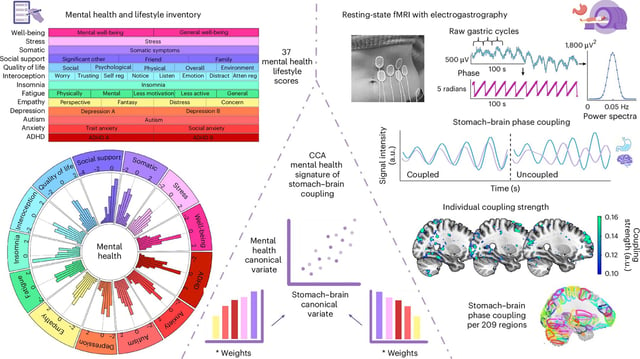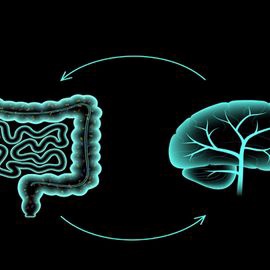Overview
- Researchers used combined fMRI and electrogastrography in over 240 participants to measure synchronization between frontoparietal brain activity and the stomach’s roughly 20-second slow electrical waves.
- Unusually strong stomach–brain coupling correlated with higher self-reported levels of anxiety, depression and stress, challenging the view that tighter body-brain communication always indicates good health.
- Control analyses confirmed that the observed effects are specific to the gastric–brain axis and the study disclosed Lundbeck Foundation funding with no conflicts of interest.
- Authors emphasize that the results are correlational and do not prove causation, suggesting increased coupling may reflect a system under psychological strain rather than a protective mechanism.
- Researchers are planning clinical and longitudinal follow-up work to evaluate gastric rhythm measures as potential objective biomarkers for treatment outcomes or early warnings of mental-health crises.


